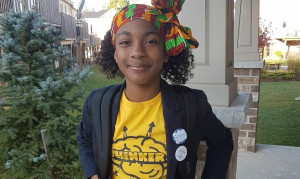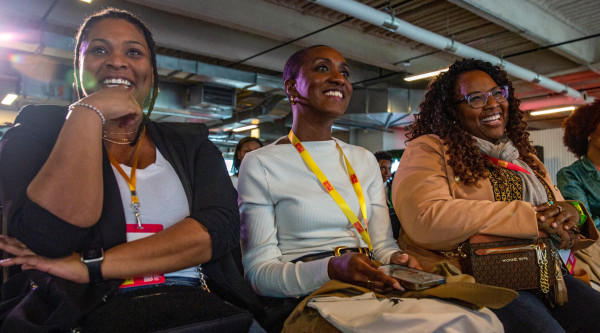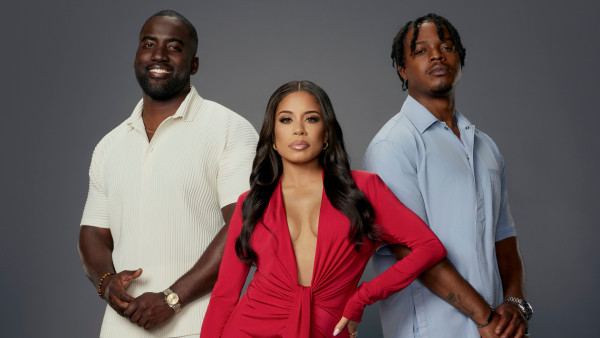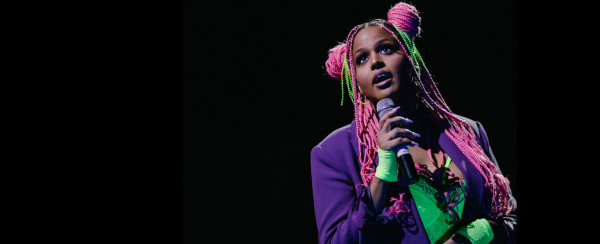Can you talk a little more about the inspiration for Lisnen.
I wear a hearing aid, and one of the things about wearing a hearing aid is that you cannot wear them all the time, because they can increase the chance of ear infection. I remove my hearing aid at night, and as a result, I don't hear anything. I have severe-to-profound hearing loss. When I was living in a condo in Nova Scotia, there was a fire drill, and the Superintendent took attendance of those who left their residence. I didn't know about the whole incident until a couple of days later. The Property Management told residents that during the drill, attendance was taken and some people were not outside. They told residents that they were putting their lives at risk and had to take the matter seriously. I remember feeling really upset about the whole thing. It wasn't as if I decided I was going to stay indoors because there was a fire drill. I decided I was going to do something about it, and I went looking for an altering device in the market. This is when everything started to become really difficult.
Firstly, it was expensive, and secondly, I had to get permission from the Property Management because I had to install these devices in my unit and in the hallway. In addition, you have to write a letter to get permission whenever you are altering anything in a condominium building, and some of the alerting devices need the use of electricity. I was like, 'there's gotta be a better way.' These devices are not just one piece. There is one you need to have as a reactor, and there is another one that responds to the reactor (the receiver and transmitter). I was like, 'why am I buying all these pieces just to get one alert? There's got to be a better way.' That's when I started to see trends of artificial intelligence. I saw Alexa and Siri. I saw people doing speech recognition, and was like, 'if it's speech, then they should be able to do it for sounds because sounds are very basic.' So I was waiting for somebody to make the project. Meanwhile, I kept buying other applications that I thought would do the job. I had another incident where this time I smelled smoke. There was a fire a couple of blocks away, and the smoke was blowing in the direction of the condominium so I could smell it my unit. I thought at 3 am that there was a fire, and I was trying to call the front desk to find out what was going on. That's when I was like, 'I am just so sick and tired of this anxiety.' It then hit me. I was like, 'okay, maybe I should be the one developing it.'
What was the next step?
The next step was really, how do you start a business? How do you get started and build a product? I have a Computer Science background, but I pivoted my career to Marketing and Communications. The question was, how do I get the product made? What are the elements and components of an application? This was the first step. To get me going, I joined Founder Institute, and I found it really helpful in terms of the business side. It helped me have a network of people that I could find support from. It was really good to have that feedback along the way. It was a 3-month program. We did some work at the Founder Institute, and we interviewed and talked to people. But, I needed to go out and really start talking to more people about what they thought of the product, if they could benefit from it, and about the challenges. I spent a lot of time doing that (just being able to get feedback from the market). I asked if it was something people will react to, and I asked how they would be using this product. I started to get the technological aspect of it, and it's going to improve because artificial intelligence has improved so much over the last couple of years. The capabilities are better. That was really the first step. It's really about getting to know the market, and then, understanding the business of what it takes to build a mobile application technology company.
What are some of the challenges you have faced?
I think the biggest challenge I would say is finding investors. You start hearing these stories like so and so got x amount of million dollars and this person got lots of funding. You then think that's a natural path based on what you hear, and you start to realize it's not always the case. It's not like you just call and it ends up happening that way. When I initially started, I was going around with an idea, trying to seek funding. The reality is that a couple of years ago it might have been easier, but now more investors are demanding to see some traction in the business. I think the biggest challenge was spending a lot of time trying to find money because that's what everybody does. Whereas you should be focusing on the business as well. The other challenge would be limited resources. How do you expand to get to the next level? For me, sometimes it was that I had to take it on myself because of the lack of resources. I got to learn, study, and get knowledge in the area. At the end of the day, it's really about going out there and trying to reach and connect with people. You have to be flexible. It's not always about funding. It's being able to look at things differently and find other solutions, and this in itself will make the business stronger because you are looking at ways to be creative. It gives you a lot of practice and exercise when restricted with resources.
How has social media helped in spreading the word?
Half of me is like, 'social media is just a channel.' It's not the only channel that I should be focusing on. There are many other ways that you can reach your target market that are equally as effective. One thing I find with the deaf and hard of hearing is that social media is a good way to communicate with visuals. There are a great group of people in my target market who are using social media, and I use that to connect with them to get some feedback on my business and ideas. I find the platform has made it very useful for me to reach out to people who I could never have been able to reach from Canada. They are all over the world. Some people are in the U.K. Some people are in the U.S. I find it brings a lot of opportunities. When it comes to marketing, the things I would like to improve on and continue to work on, is developing communication that speaks to the market. It can only be developed through having one on one communication. I would say it is the language that they speak and how they see things (more visual than a lot of text, and storytelling). There is a lot to learn. You can use social media to hone in on your message and capitalize on being able to communicate with your specific demographic quicker and efficiently.
How has the idea been received so far?
It has been well received. For the hearing community, it is complete oversight. A lot of people are like, 'oh yeah, I never really thought of it.' It becomes an opportunity for me to be a voice, an advocate for the deaf and hard of hearing. For the deaf and hard of hearing community, this product has been something that they really value. I think it's because it is from a person who has been in their shoes and understands them. I think that in itself has brought a lot of interest and a desire to support and make sure that this product and this company becomes successful. Everybody is really supporting this business because they see the value. They see the challenges that people living with a disability are facing on a daily basis, and they want to support that and make a difference. They believe in the same mission that I'm trying to achieve, which is essentially to empower the deaf and hard of hearing community to be able to live the life that they want to have without the barriers.
If people want to support your work, how do they go about doing that?
I have an email list they can join. They can follow me on social media. They can even reach out to me directly via email (This email address is being protected from spambots. You need JavaScript enabled to view it. ). I'm happy to hear from them whether they are hard of hearing, deaf, or just anybody who wants more information about the product or find a way to support or contribute. I'd be happy to take that time to connect with people. I value the fact that they are interested and want to support me.
In terms of the product, how can a person get it?
It is a mobile application that we are launching in 2020. So, you would go to Google Play or Apple store and download it. It is very automatic. It is a paid application. In the future, they will be able to pair it with other devices. For example, if you have a smartwatch, you'd be able to pair it and receive alerts from your smartwatch. But to answer your question, it is really seamless. You go to Google Play or Apple store, download it, and it will start operating right away (after a trial period, you can go through the whole subscription plan). But for now, until it is officially launched, people should sign up on our website to get updates.
I'm sure it is not as expensive as the products you needed to get before the application?
It is much cheaper, way cheaper. One of the benefits of my application is that I can take it outdoors. While I'm driving or walking, I'm able to hear sirens and car horns and get that alert. Whereas the current devices which are just indoors cost over $1000 on average. You get a fire alarm, probably a baby cry, a doorbell, and maybe a phone notification. Whereas this application expands. You can get all kinds of alerts to various sounds, and you don't have to buy hardware. It is cost-effective.
You mentioned earlier about having anxiety all the time. Could you describe what the deaf and hard of hearing have to go through on a daily basis?
That's a good question. If I were to compare, it is like when you hear something but don't know what it is and it causes fear. You are just not sure what that sound could be. It's like a constant unknown. In the case of the fire alarm, you are constantly thinking will it happen or will it not happen. Sometimes you take a lot of risks and chances. Many people I've interviewed say there is also the element of embarrassment when you find out after the fact. One lady that I was speaking to, told me that she had come out of a burning building with a full crew of media videotaping her (she didn't hear the fire alarm). There is an element of embarrassment because you are made to feel less than because you are not able to react the same way other people are able to react. Another thing I have heard other clients talk about is the pressure they are under at work. When you are in an office space and you are sitting at your desk and you don't hear anything, you want to be able to focus on what you are doing.
However, you have to constantly look around because you have to see what is going on in your environment. It is quite unsettling because you just can't focus on doing what you want to do. It becomes exhausting, and a lot of people who are hard of hearing would say, 'at the end of the day, I know why I am so tired.' You are on constant alert because you are not sure what could happen. Most of the communication that is happening through sound is lacking, so you need to find other sources. If that source is not visible and it is unknown to you, you are constantly looking. This is on top of the other responsibilities that you have for that day. You will always hear people who are deaf and hard of hearing say, 'oh my God, I love the end of the day. I can just switch off and relax and not have to feel on top of things. I just want to be.' That's the best way I can describe it. It's funny because when you go through it you don't realize it. At the end of the day, I'm like, 'Oh God, I'm just so tired.' I never understood why that was, but when you hear other people talk about the same experience that you are going through, you are like, 'gosh, that's why.' You constantly have to 'pay attention.'
What do you desire for this product in the future?
I think this product is a means to an end of being able to help people who are deaf and hard of hearing to navigate in this hearing world. It's not the end goal. There are so many opportunities to really close that gap between the hearing world and deaf and hard of hearing world. It has far too long been the same way, in that there is very little improvement. There has been some improvement, but it is not enough for people to feel that they can integrate into society. My goal is to bridge the gap between the deaf and hard of hearing community and the hearing world, to make sure that we fully participate.
Know a Black Canadian story we should cover? Email: info at byblacks.com.
Lucy Oneka is a playwright and journalist. She has covered many stories for Toronto-based newspapers such as the East York Observer, the Scarborough Observer, and the Toronto Observer. Lucy’s other passion is music. She is a two-time semi-finalist of the prestigious UK Song Writing Contest and recently released her own debut gospel album, “You Are Faithful”
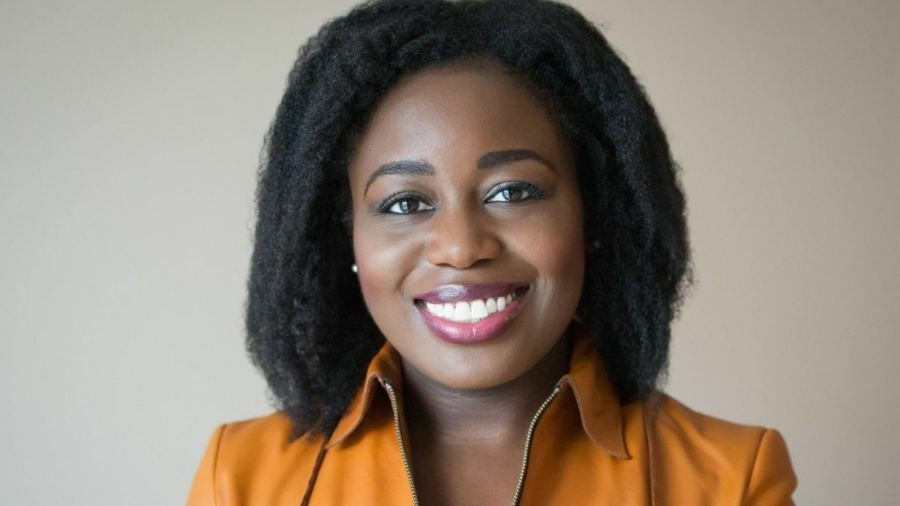
 By
By 




